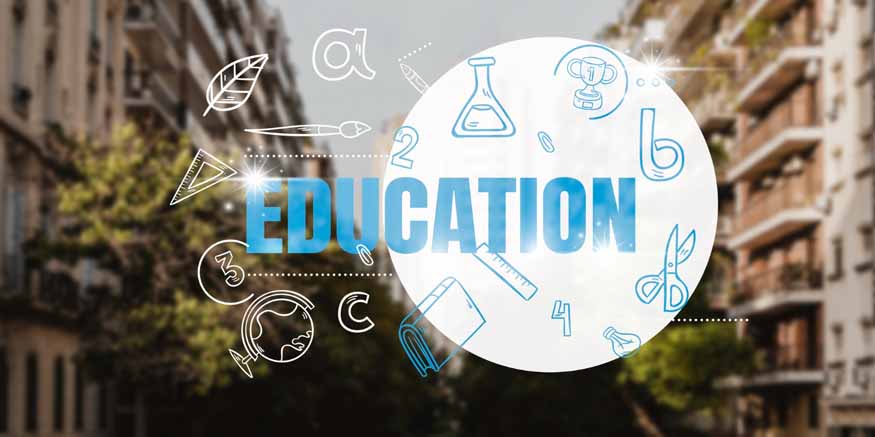One of the most challenging problems for parents in their child’s academic journey is choosing the right education board. Parents have many options to choose from when it comes to choosing an education board for their child. In India, two of the most popular education boards are the Central Board of Secondary Education (CBSE) and the Indian Certificate of Secondary Education (ICSE).
While both boards offer quality education, the choice of the board makes a significant difference in the child’s early development. Hence, the CBSE Vs. ICSE decision can be a difficult decision to make.
What is better for the child? How does one choose the right system? To make an informed decision, parents must understand and become aware of the significant difference between the CBSE and ICSE boards. This article will examine the primary distinctions between ICSE and CBSE boards in more detail to help you explore and differentiate between the two boards effectively.
CBSE vs. ICSE: History and Background
The CBSE board is a national-level education board established in 1962 by the Government of India. The board conducts the final examinations for Class 10 and Class 12 and is responsible for the affiliation of schools in India and abroad. The CBSE follows a curriculum based on the National Curriculum Framework (NCF) and is designed to be relevant, comprehensive, and flexible.
The ICSE board, on the other hand, was established in 1958 by the Council for the Indian School Certificate Examinations (CISCE). The board conducts the Indian Certificate of Secondary Education (ICSE) and the Indian School Certificate (ISC) examinations for Classes 10 and 12, respectively. The ICSE follows a curriculum based on the New Education Policy (1986) recommendations and is designed to be holistic, experiential, and learner-centered.
CBSE vs. ICSE: Curriculum and Examination
One of the main differences between the CBSE and ICSE boards is how they approach their curriculum and examinations. The CBSE board follows a more flexible and integrated approach, where subjects are organized into blocks of related themes and topics. This allows students to explore different issues more interconnectedly and holistically. The CBSE will also enable students to choose between other streams in Class 11 and 12, such as science, commerce, or humanities. The CBSE board is known for its well-structured curriculum, designed to prepare students for competitive exams such as IIT-JEE, NEET, etc.
The ICSE board, on the other hand, follows a more traditional and subject-based approach, where each subject is taught in isolation. This allows students to go deeper into each topic and develop a strong foundation of knowledge. The ICSE also has a more rigorous and comprehensive examination system, emphasizing practical skills, projects, and assignments.
Another difference between CBSE and ICSE is the examination structure. The CBSE board conducts two main examinations: the All-India Secondary School Examination (AISSE) for Class 10 students and the All-India Senior School Certificate Examination (AISSCE) for Class 12 students. The ICSE board conducts a single examination, the Indian Certificate of Secondary Education (ICSE), for Class 10 students.
The CBSE and ICSE boards offer a variety of subjects for students to choose from, but there are some differences in the topics presented. The CBSE board provides a broader range of issues, including vocational subjects such as agriculture, fashion design, and web application. The ICSE board has a more limited range of topics but offers a more significant number of language options, including Sanskrit, French, and German.
CBSE vs. ICSE: Grading System
Another difference between CBSE and ICSE boards is how they grade their students. The CBSE follows a grading system that ranges from A1 (highest) to E (lowest). The grades are based on the marks scored by the student in each subject, with a percentage of signatures required for each step. For example, a student who scores 90% or above in a subject will receive an A1 grade.
The ICSE, on the other hand, follows a grading system that ranges from A (highest) to F (lowest). The grades are based on the student’s overall performance, with a minimum percentage of marks required for each step. For example, a student who scores 80% or above in a subject will receive an A grade.
CBSE vs. ICSE: Recognition
In terms of recognition, both the CBSE and ICSE boards are recognized by the government of India and are accepted by universities and colleges in India and around the world. However, the CBSE board is more widely recognized in India. CBSE education is there in almost every city in India and hence, is a significant advantage for the students who often relocate within India. At the same time, the ICSE board is more popular with students who plan to study abroad and is considered to have a more rigorous curriculum.
CBSE vs. ICSE: Advantages of CBSE Board
In the CBSE Vs. ICSE, The Central Board of Secondary Education (CBSE), has several advantages that make it a popular choice for students and parents in India. Here are some of the main benefits of the CBSE board:
- National Recognition
- Flexibility
- Stream Options
- Grading System
- Continuous and Comprehensive Evaluation
- Examination System
- Support for Students with Special Needs
The CBSE is a national-level board of education recognized by the Government of India and many universities worldwide. This means that students who complete their education under the CBSE board can pursue higher studies anywhere in India or abroad.
The CBSE follows a flexible and integrated curriculum that allows students to explore different subjects in a more interconnected and holistic way. This gives students the freedom to choose topics that complement their interests and career goals.
The CBSE allows students to choose between different streams in Class 11 and 12, such as science, commerce, or humanities. This will enable students to specialize in a particular study area and prepare for future careers.
The CBSE follows a grading system that ranges from A1 (highest) to E (lowest). This allows students to see their progress and understand their performance in each subject.
The CBSE follows a continuous and comprehensive evaluation system that assesses students’ performance throughout the year. This helps students identify their strengths and weaknesses and improve their skills.
The CBSE has a well-organized and transparent examination system that is conducted fairly and unbiasedly. This gives students the confidence and motivation to perform to the best of their abilities.
The CBSE provides outstanding support and accommodations for students with physical, sensory, or learning disabilities. This ensures that all students have an equal opportunity to succeed.
CBSE vs. ICSE: Advantages of ICSE Board
The Indian Certificate of Secondary Education (ICSE) board has several advantages that also make it a popular choice for students and parents in India. Here are the main benefits of the ICSE board:
- Holistic Approach
- Subject-Based Learning
- Rigorous and Comprehensive Examination System
- Grading System
- International Recognition
- Support for Students with Special Needs
- Strong Emphasis on English
The ICSE follows a holistic and experiential curriculum learning that focuses on the overall development of the student. This includes academic, physical, emotional, and social development.
The ICSE follows a traditional and subject-based approach, where each subject is taught in isolation. This allows students to go deeper into each topic and develop a strong foundation of knowledge.
The ICSE has a rigorous and thorough examination system that assesses a wide range of skills, including practical skills, projects, and assignments. This helps students to develop a well-rounded skill set.
The ICSE follows a grading system that ranges from A (highest) to F (lowest). This allows students to see their overall performance and understand how they are doing about their peers.
The ICSE is recognized by universities and educational institutions worldwide, including people from the United States, the United Kingdom, and Canada. This allows students to pursue higher studies abroad.
The ICSE provides outstanding support and accommodations for students with physical, sensory, or learning disabilities. This ensures that all students have an equal opportunity to succeed.
The ICSE focuses strongly on the English language, an essential global language and a valuable skill in the modern world.
CBSE vs. ICSE: Making the Final Decision
There are many differences between the CBSE and ICSE boards, ranging from their history and background to their curriculum, examination, and recognition. While both boards offer quality education, parents need to consider certain factors when determining the best choice for their child. Here are some tips to make the CBSE Vs. ICSE decision smoother:
- Consider the student’s learning style, academic interests, strengths, career goals, personal preferences, and abilities
- Determine the type of grading and examination pattern the student is comfortable with
- Evaluate the board’s syllabus and the extra-curricular activities offered by the board. It is beneficial to do your research and consider all of the options before making a decision.
Enroll your child in the best CBSE School in India, and take school admission today to secure their learning career.









